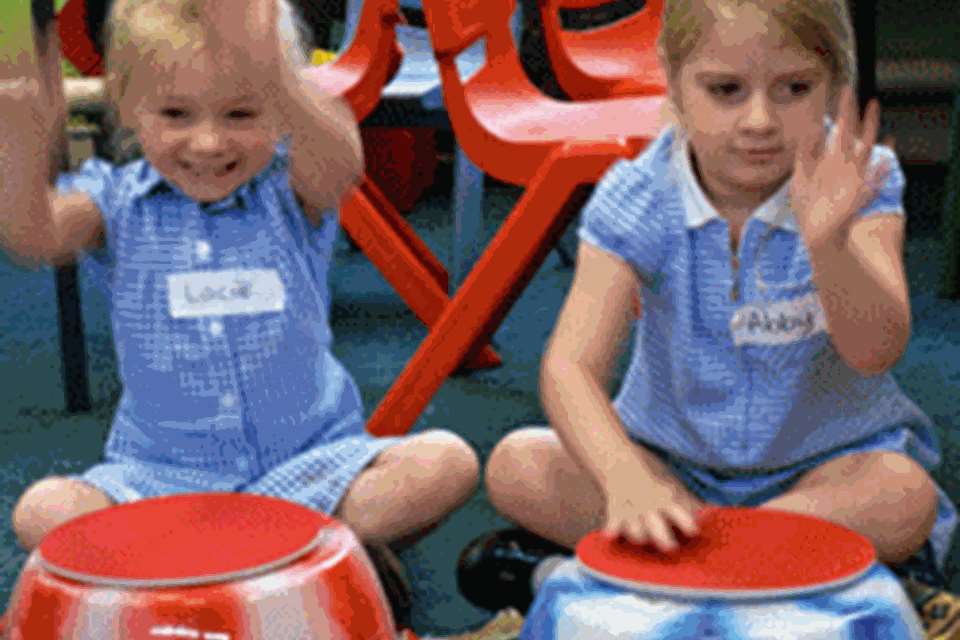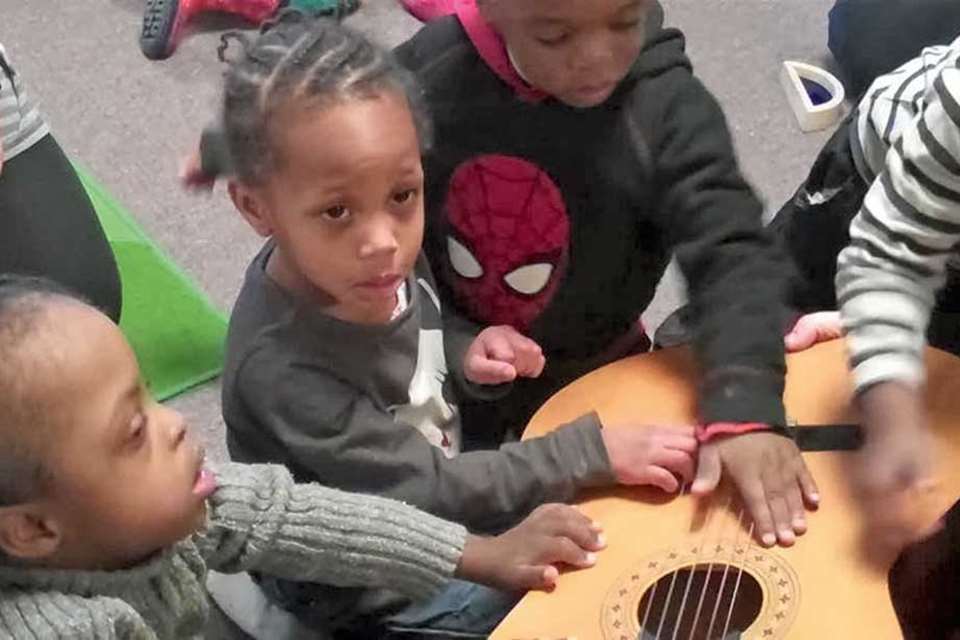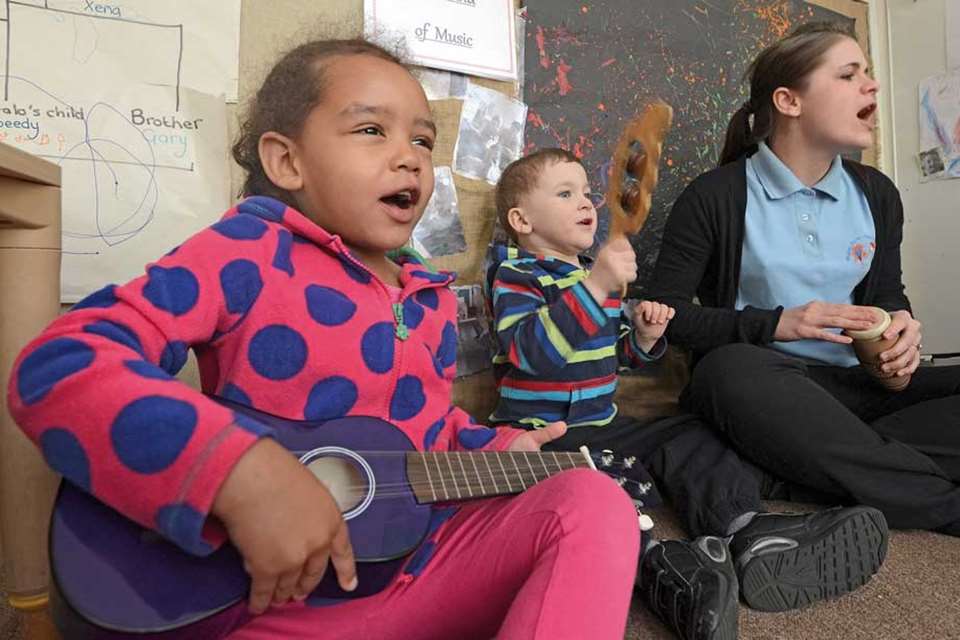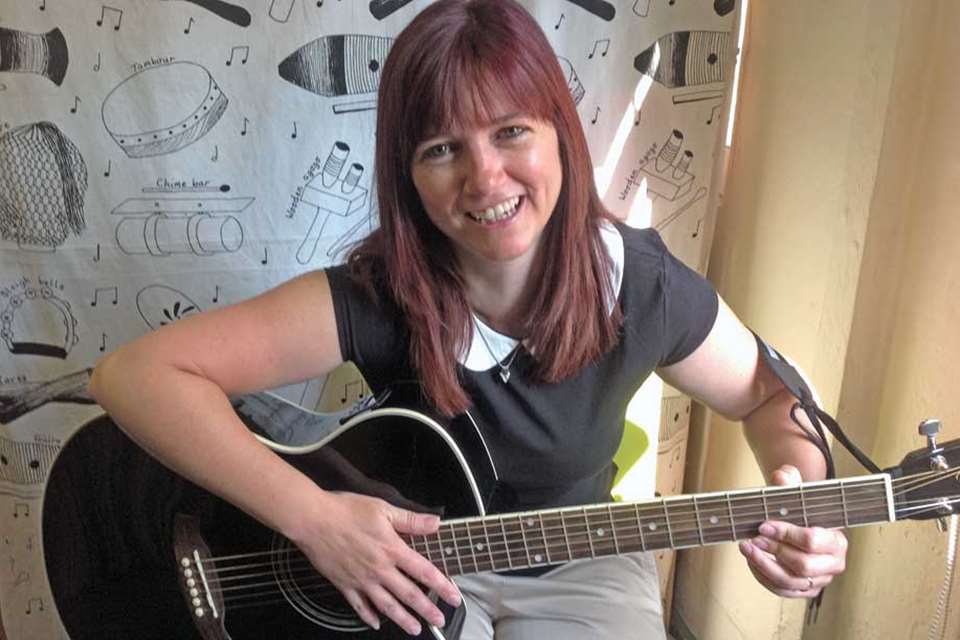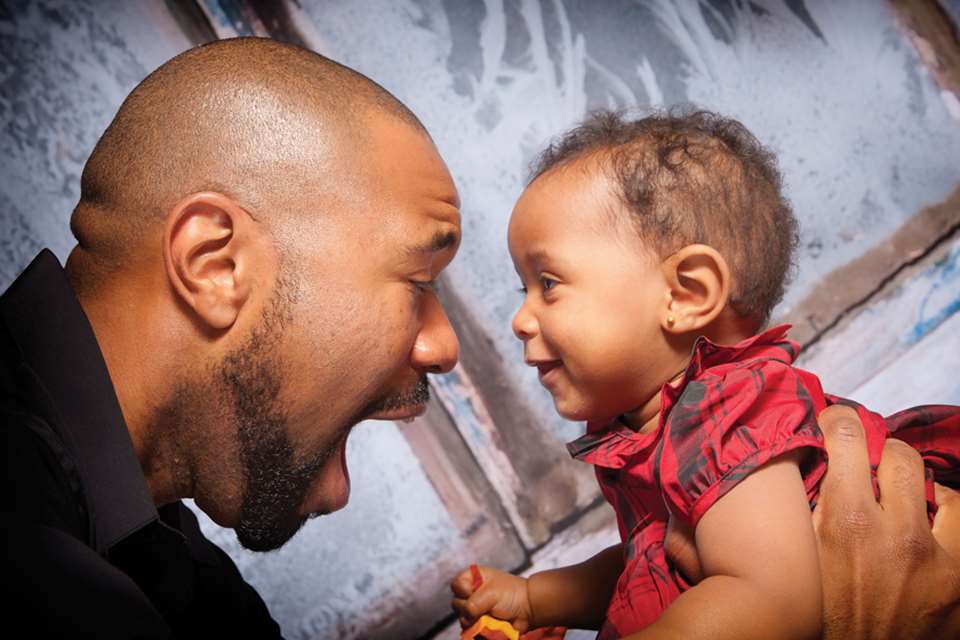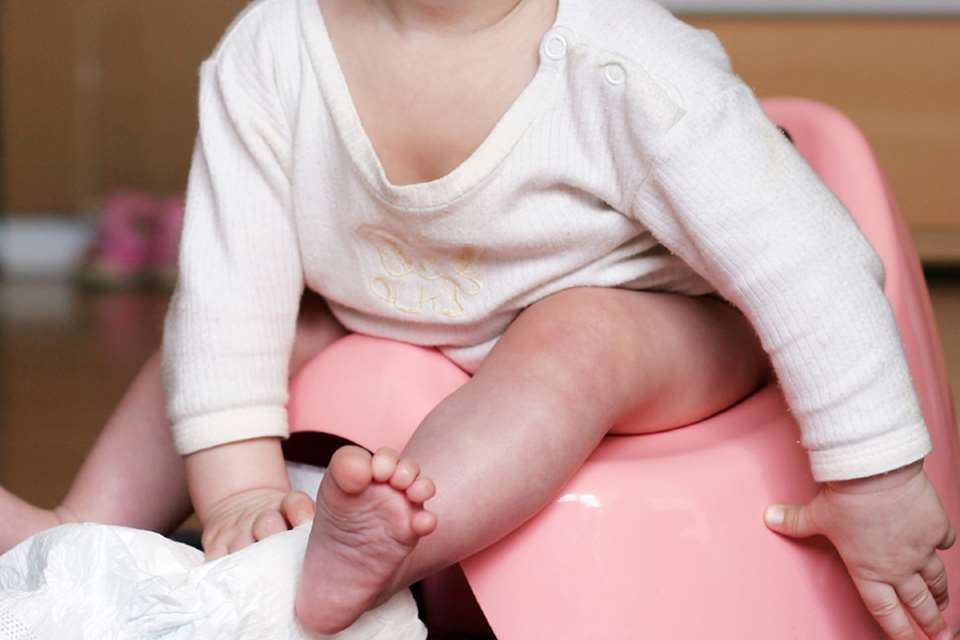Positive Relationships: Home learning - A parent's guide to ... music
Ruth Thomson
Monday, May 18, 2015
Why is listening to - and making - music important for children? Penny Tassoni explains, and suggests some activity ideas
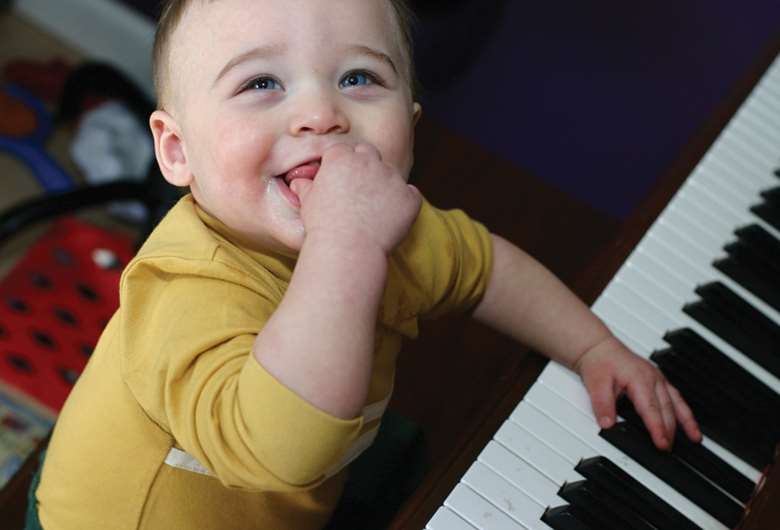
Most children come into the world with a natural interest in music and rhythm. Babies will calm to the sound of a lullaby or enjoy being rocked. One of the great things about music is the way it crosses cultures and centuries - while some of the songs and sounds have changed from generation to generation, it still remains important in childhood.
FIVE THINGS YOU NEED TO KNOW ABOUT MUSIC
Here are five things you should know about the role of music in children's lives.
1. Listening skills
When children listen to or join in with music, they develop good auditory discrimination skills - that is the ability to make sense of the different sounds in our speech. They are able to pick out individual sounds and also rhythms. These are useful skills, which are needed when children start the process of reading.
2. Social skills
Musical activities such as joining in with singing or playing games with music like the Hokey Cokey seem to help children's social skills. It is great way for young children to be with others and have fun. Hearing an adult sing to them can encourage them to make eye contact and to maintain attention.
3. Mood changing
Music is known to affect our emotions and mood. Most parents instinctively know this as they often rock or sing to their babies. In addition, there is evidence to suggest that 'feel-good' hormones, known as endorphins, are released when we sing with others. This means that singing with your child can help create a positive atmosphere.
4. An outlet for creativity
Very young children can be extraordinarily creative when it comes to music. Early on, they start to improvise the words in songs or make up tunes. When given simple instruments, children will often explore the sounds that they can make with them, learning about tone and volume in the process.
5. Brain stimulation
It has been suggested that listening to music and being involved in making music is useful in stimulating some cognitive skills, such as concentration, attention and the ability to detect patterns and sequences. There have also been claims that maths and music are linked, but a word of caution here - there are plenty of musicians who find mathematics difficult!
TYPES OF MUSICAL ACTIVITY
It can be helpful to know the different types of musical activity that are common in the early years and how they can help your child. It can also be useful to know when they may be introduced to your child. Below are the types of musical experience and resources that might help your child at different ages. It is important to remember that this is a guide only.
Singing
Singing is one of the great starting points for children's musical activity. At first, babies need to hear adults sing, and over time children start to join in. The more children sing, the more tuneful they will become, as singing in tune is a skill. The great thing about singing is that it can be done anywhere and any place. Singing is particularly useful for children who have asthma as it can help them to breathe more efficiently.
Action songs and games
Many early years settings will do some action songs with children, such as Head, Shoulders, Knees and Toes, or games like Musical Statues. These are enjoyable for children and can help them to socialise as well as develop co-ordination and listening skills. Most children are ready to join in with these from about two years of age.
Untuned percussion instruments
From as young as nine months, children can enjoy simple percussion instruments such as shakers, rattles and drums. These can be home made and in some early years settings may be made into a sound wall.
Untuned instruments - that is, instruments that don't play a particular note or notes - can help your child to develop their co-ordination skills and also find the beat (see later). Once children reach about three years old, they are likely to be ready to join in group activities with percussion instruments. This can help them with turn-taking as well as listening.
Tuned percussion instruments and keyboard
Instruments such as xylophones, glockenspiels and keyboards can help children to create tunes. Look out for simple versions and sit with your child to help them see the relation between the position of a note on the keyboard and its pitch (high or low sound).
Learning to play a musical instrument
If your child is showing an interest in music, you might consider helping them to learn one. To make progress, children need to be motivated, be able to concentrate and be sufficiently co-ordinated. You should also consider whether your child is mature enough to practise and whether you will have the time to support them in this. As a broad rule of thumb, most children are not ready for this until they are about six years old, but do ask advice from a music teacher.
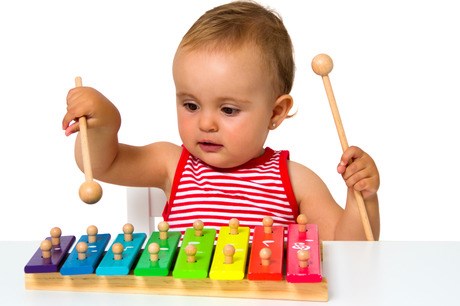
FINDING THE BEAT
One of the many benefits of musical activity for young children is the way that it can improve their listening and attention skills. Listening and paying attention is key for all sorts of other learning.
There are many listening activities linked to music that you can do with your child. One of the easiest is to help your child clap, tap or shake an instrument in time to the beat.
Most young children are good at finding the beat especially when adults take the lead by clapping along. There is some evidence that being able to find and keep a beat may be good for developing reading skills.
FIVE TIPS TO SHARE MUSIC
There are several easy things you may wish to try to help your child benefit from music.
1. Sing!
Try to sing every day. You could make it part of a routine, such as getting dressed or having a bath and shower. It doesn't matter what type of songs you sing and you can even make them up as you go along.
2. Make simple music together
Children enjoy rattling shakers or beating drums in time to music. This helps them learn that they can be part of music making. Put on a track that you both enjoy and shake and rattle away.
You can make simple shakers by partly filling a plastic bottle with items such as rice or pasta and then either tightly screwing on the lid or gluing it down.
3. Listen to different kinds of music
Children benefit from having listened to and enjoyed a wide range of music styles. Everything from classical to reggae, jazz and soul all help children to pick out different beats and rhythms. As well as putting on your favourite tracks and radio stations, try out a few different sounds and styles and see how your child reacts.
4. Talk to your child about music
Music is everywhere - on the radio, as sound tracks in cartoons and films and even in some shops. From time to time, ask your child to listen to the music and talk to them about whether or not they like it or how it makes them feel. Listening critically to music can help children to focus on tones, pitch, melody and rhythms.
5. Look out for local music activities
While opportunities to join in musical activities vary from area to area, it is worth seeing what is available locally. Some libraries, for example, have song and rhyme sessions that are free to attend. It is also worth seeing what music is being played locally at different times of the year - for example, bands in parks, lunchtime concerts and live music played by buskers.
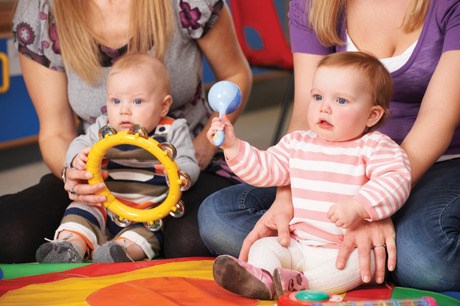
COMMON QUESTIONS
Q. Is my three-year-old too young to start piano lessons?
A. Most piano teachers take the view that formal lessons are better when children are older than this. This means that most children are about six or seven when they first take up the piano. The advantage of waiting is that your child will already be used to concentrating and following instructions. If you already have a piano or keyboard at home though, there is nothing to stop you from encouraging your child to explore how to make different sounds.
Q. I want to sing with my son, but I can't sing in tune. Does this matter?
A. Many people say that they can't sing in tune, but the reality is that this is quite rare. The good news is that as long as you are giving it a go, your child will not mind. Interestingly, the more that you sing, the more you are likely to gain confidence and improve your own skills.
Q. Is it a good idea to use musical toys with babies and toddlers?
A. In theory anything goes, but it is worth trying to choose toys that play music carefully. Think about the quality of the sound as well as how it will help your child to play and learn.
Some toys such as microphones and recorders can be very motivating for children because they can be used in many ways; others such as 'mock keyboards', which only have pre-recorded tunes, are probably less useful.
ACTIVITIES TO BUILD MUSIC SKILLS
You may like to try out these simple activities, which can help to develop your child's awareness of music and develop some early skills.
Echoing back
A simple activity that can help your child listen is to make a short sound either by clapping or singing and see if your child can echo it back. A good way to introduce this is to make a doorbell sound - 'Ding dong!' - and then repeat it again.
Wait a few seconds and see if your child echoes it back. Once your child is able to do this, start putting together three or four sounds and see if they can repeat it back.
Marching along
Marching music can be great to help children find, and also join in with, the beat. Look out for well-known tunes that you can download online. Once you have found some marching music that you like, see if you and your child can move in time to the beat. If you are keen, you could also try putting out an upturned wastepaper basket for your child to use as a drum.
Musical Statues
Musical Statues is a traditional game that can help children develop listening skills. Put on some favourite music and dance together. When you stop the music, your child has to stay as still as possible. You could also do this by tapping out a rhythm and seeing if your child can stay still when the rhythm changes or stops. Musical games like these work really well if your child has friends over to play, or at birthday parties.


